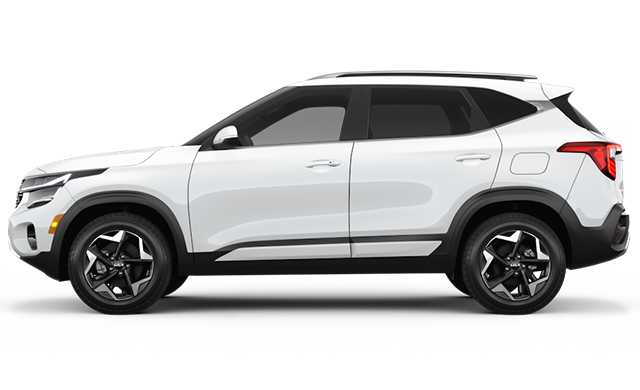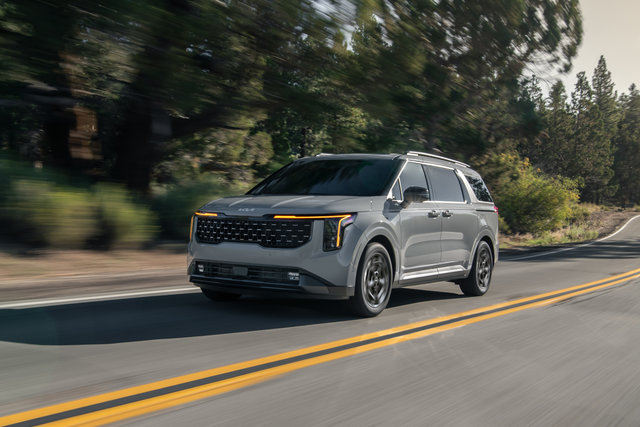Securing your first vehicle in Ontario requires financial strategy that goes beyond choosing a car you like. Your credit profile, financing structure, and payment approach directly impact your transportation costs for years to come. Understanding these financial mechanics before you shop puts you in control of the process rather than at the mercy of whatever terms you're offered.
The numbers matter more than emotions in vehicle financing. Your monthly payment, interest rate, and loan term create long-term financial commitments that affect your budget and settlement success. Approach vehicle financing with the same analytical mindset you'd apply to any major financial decision—because that's exactly what this is.
Understanding Ontario Credit Systems for Vehicle Financing
Your credit score determines your financing options more than any other single factor. Ontario lenders evaluate creditworthiness through Canadian credit history exclusively, leaving newcomers at a distinct disadvantage regardless of their international financial standing. This reality requires immediate action to establish local credit credentials.
Canadian credit scores range from 300 to 900, with vehicle financing typically requiring scores above 650 for favorable rates. Below this threshold, you face higher interest rates, larger down payment requirements, or co-signer demands that complicate your purchase process.
Build credit systematically through secured credit cards that require cash deposits equal to your credit limit. Use these cards for regular purchases—fuel, groceries, utilities—then pay balances in full monthly. This activity generates positive payment history that forms your credit foundation. Expect three to six months before you see meaningful score improvements.
Banking relationships accelerate credit building. Choose financial institutions offering newcomer packages with reduced fees and credit-building tools designed for immigrants. Many banks provide secured cards, starter loans, or other products specifically engineered to help newcomers establish credit quickly.
Monitor your credit report monthly through free services like Credit Karma or Borrowell. Watch for errors, understand which factors impact your score most significantly, and track improvements over time. Knowledge of your exact credit standing prevents financing surprises during dealership visits.
Calculating Your Vehicle Budget Reality
Your vehicle budget extends far beyond monthly payments. Ontario's true cost of vehicle ownership includes insurance premiums, fuel, maintenance, registration fees, and depreciation—expenses that can double your transportation costs compared to payment amounts alone.
Start with total household income, then apply the 20% rule: your total transportation costs should not exceed 20% of gross monthly income. This includes your vehicle payment, insurance, fuel, and maintenance. Apply this percentage to determine your maximum affordable monthly commitment.
Insurance costs in Ontario vary dramatically based on your location, driving history, and vehicle choice. New drivers without local history face premiums potentially exceeding $3,000 annually in urban areas. Obtain insurance quotes before finalizing vehicle selection, as these costs significantly impact your total budget.
Factor in fuel consumption based on your actual driving patterns. Commuting from Niagara Falls to Toronto weekly creates different fuel costs than local city driving. Calculate annual fuel expenses using realistic consumption estimates and current Ontario fuel prices.
Set aside funds for maintenance and unexpected repairs. New vehicles require less immediate maintenance but depreciate faster. Used vehicles need more frequent service but offer lower initial costs. Budget $1,000-$2,000 annually for maintenance on most vehicles.
Financing Versus Leasing Analysis
Your financing choice affects your monthly payments, equity building, and long-term transportation costs. Analyze both options based on your specific financial situation and settlement plans rather than monthly payment amounts alone.
Financing builds equity through ownership. Your payments reduce loan principal while building asset value. After completing payments, you own an asset with resale value and no ongoing monthly obligations. This approach suits newcomers planning long-term settlement in Ontario or those who drive extensively.
Kia Finance offers competitive financing terms with flexible loan periods from 24 to 60 months. Shorter terms create higher monthly payments but reduce total interest costs. Longer terms lower monthly payments but increase total financing costs significantly.
Leasing reduces monthly payments by covering depreciation rather than full vehicle value. You pay for the vehicle's value decline during your lease term plus interest and fees. Lower payments preserve cash flow during your settlement period but build no equity.
Lease terms typically span 36 to 48 months with mileage restrictions—usually 20,000 to 24,000 kilometres annually. Exceeding these limits creates costly overage charges. Consider your driving patterns honestly before committing to mileage restrictions.
Guaranteed Asset Protection (GAP) coverage comes standard with Kia Finance leases, protecting you from financial loss if your vehicle suffers theft or total damage. This coverage costs extra with financing but provides valuable protection for your investment.
Down Payment Strategy and Impact
Your down payment amount affects monthly payments, interest costs, and loan approval chances. Larger down payments reduce monthly obligations and demonstrate financial commitment to lenders, potentially securing better interest rates.
Traditional guidelines suggest 20% down payments for new vehicles and larger percentages for used cars. However, many lenders accept smaller down payments—sometimes as low as 5-10%—particularly for newcomers with employment verification and stable income.
Consider your cash flow carefully. Larger down payments reduce monthly obligations but deplete your emergency fund and settlement resources. Balance lower monthly payments against maintaining adequate cash reserves for unexpected expenses.
Trade-in vehicles provide down payment credit when their value exceeds outstanding loan balances. However, you'll typically receive more value selling privately than through dealership trade-ins. Calculate both options to determine your best financial approach.
Some manufacturers offer cash incentives that function as down payment assistance. These rebates reduce your financed amount without requiring additional cash from your savings. Research available incentives before negotiating your purchase.
Interest Rates and Loan Terms Impact
Interest rates directly affect your total vehicle cost over the loan term. A 2% rate difference on a $25,000 loan costs approximately $1,300 over 60 months—enough to matter significantly in your budget planning.
Your credit score primarily determines your interest rate, but loan term and vehicle age also influence rates. Longer terms typically carry higher rates, while used vehicles face higher rates than new cars. Understand these relationships before negotiating financing terms.
Manufacturer financing programs through Kia Finance sometimes offer promotional rates below market levels for qualified buyers. These programs target specific models or buyer categories and can provide substantial savings compared to bank financing.
Consider total interest costs, not just monthly payments, when comparing loan terms. A 72-month loan at 6% costs $3,900 more in interest than a 48-month loan at the same rate on a $25,000 vehicle. Lower monthly payments come with significantly higher total costs.
Pre-qualification through banks or credit unions provides rate comparisons before dealership visits. This knowledge strengthens your negotiating position and prevents accepting unfavorable dealership financing without exploring alternatives.
Tax Implications and Registration Costs
Ontario's Harmonized Sales Tax (HST) applies to vehicle purchases at 13% of the purchase price. This tax significantly impacts your total vehicle cost and financing needs. HST can be financed as part of your loan or paid separately at purchase.
New vehicle HST applies to the full purchase price, while used vehicle tax calculations depend on purchase price or deemed value—whichever is higher. Understanding these calculations prevents budget surprises during your purchase process.
Registration fees, license plates, and administrative costs add several hundred dollars to your purchase. Budget approximately $500-$700 for these mandatory expenses beyond your vehicle price and tax obligations.
Some dealerships include registration costs in their advertised prices while others add them separately. Clarify these costs upfront to compare dealership pricing accurately and avoid unexpected expenses during your purchase process.
Making Your Financial Decision
Your vehicle financing decision impacts your budget for years to come. Approach this choice with analytical thinking rather than emotional responses to particular vehicles or payment options that seem attractive on the surface.
Calculate total ownership costs including payments, insurance, fuel, and maintenance over your planned ownership period. Compare these totals across different vehicles and financing options to identify your most cost-effective approach.
Consider your settlement timeline and plans. Short-term residents might benefit from leasing flexibility, while long-term settlers often benefit from ownership equity. Your financing choice should align with your broader settlement and financial goals.
Ready to put your financial knowledge into action? Visit Cardinal Kia in Niagara Falls, where our financing specialists will analyze your specific situation and structure a vehicle purchase that strengthens rather than strains your financial position as you build your new life in Ontario.
To learn more about financing a Kia vehicle, visit Kia.ca








